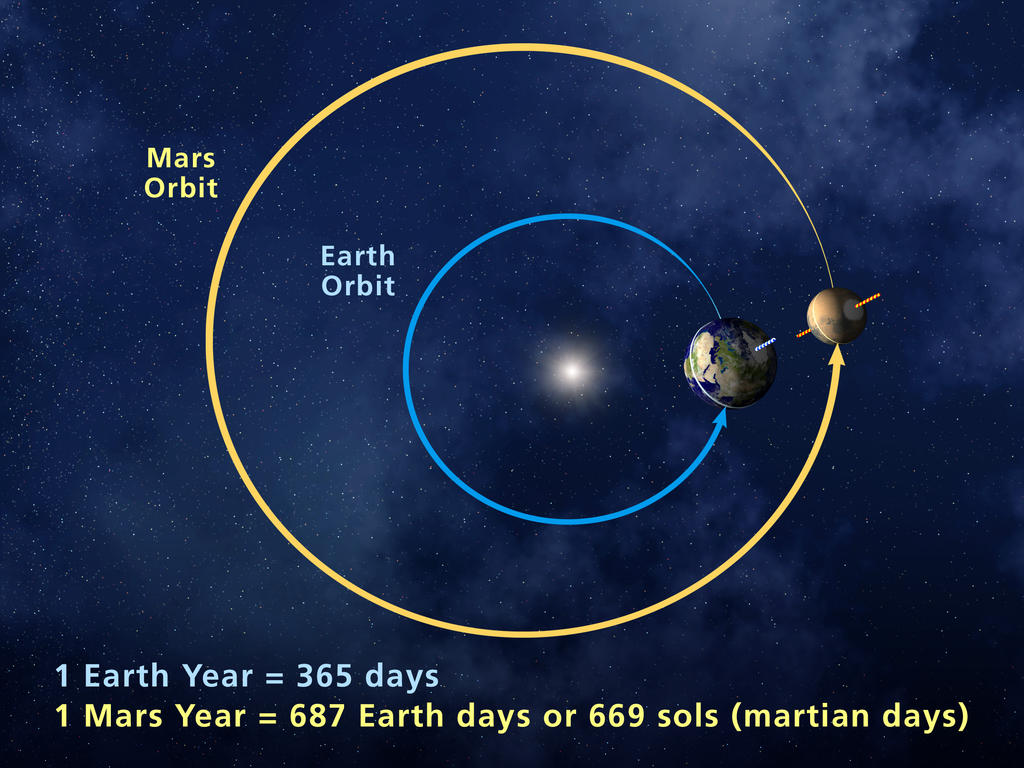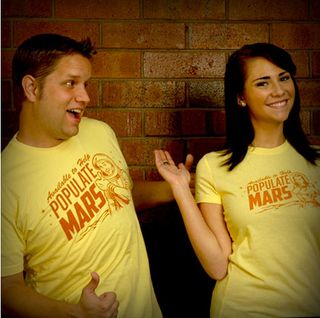Happy New Year, Mars! NASA Toasts Martian Calendar Milestone

It's New Year's Day on the Red Planet today and NASA is celebrating in style with an epic three-day party in Mars itself … Mars, Pennsylvania, that is.
NASA scientists and Mars experts have descended on the town of Mars to celebrate the Martian New Year today (June 18) with a press briefing at a flying saucer spaceship monument in Mars, Pennsylvania, kicks off a weekend of Mars-themed activities by NASA to inspire kids to pursue careers in science, technology, engineering, arts and mathematics – all fields that the space agency says it will need in its push to the Red Planet. [Mars Myths & Misconception: A Quiz]
Among the invited speakers is Jim Green, NASA's director of planetary science. Green not only oversees many aspects of Red Planet exploration, but also was a technical consultant on the upcoming movie "The Martian," which lands in theaters in November.

Mars celebrates its New Year about once every two Earth years because the Red Planet takes twice as long to orbit the sun as our world. Astronomers count the Martian New Year from the time that the planet's northern hemisphere spring equinox starts on Mars. This year, the Martian New Year starts June 19.
Other NASA activities at the event include a "blast-off" dinner, a talk about music of the Red Planet, and a performance by a Mars Jump Rope Team. There will also be a miniature rocket launch on Saturday (June 20), subject to weather.
In recent months, NASA has been publicly aligning many of its activities to what it says will be the ultimate goal: landing a human on Mars in a few decades. For now, NASA's human exploration is confined to low Earth orbit, but it has an Orion spacecraft under development to bring people further into the solar system.

Mars is currently being studied by a fleet of spacecraft built by NASA and the space agencies of Europe and India. On the surface, NASA's Opportunity and Curiosity rovers continue to drive across the Martian terrain, while several orbiters monitor changes in the planet from above. The most recent addition was India's Mars Orbiter Mission, which arrived at the Red Planet on Sept. 24, 2014, two days after NASA's own Mars Atmosphere and Volatile Evolution Mission orbiter.
Get the Space.com Newsletter
Breaking space news, the latest updates on rocket launches, skywatching events and more!
You can see more details about the Martian New Year celebrations at http://www.marsnewyear.com/.
Editor's note: This story was corrected to reflect that NASA's Mars briefing today will not be webcast on NASA TV.
Follow Elizabeth Howell @howellspace, or Space.com @Spacedotcom. We're also on Facebook and Google+. Original article on Space.com.
Join our Space Forums to keep talking space on the latest missions, night sky and more! And if you have a news tip, correction or comment, let us know at: community@space.com.

Elizabeth Howell (she/her), Ph.D., was a staff writer in the spaceflight channel between 2022 and 2024 specializing in Canadian space news. She was contributing writer for Space.com for 10 years from 2012 to 2024. Elizabeth's reporting includes multiple exclusives with the White House, leading world coverage about a lost-and-found space tomato on the International Space Station, witnessing five human spaceflight launches on two continents, flying parabolic, working inside a spacesuit, and participating in a simulated Mars mission. Her latest book, "Why Am I Taller?" (ECW Press, 2022) is co-written with astronaut Dave Williams.